Epidemiology Researchers
Faculty profiles
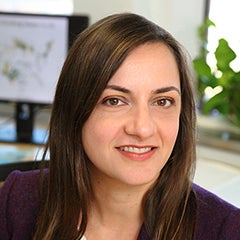
Maria Argos, PhD, focuses on environmental and molecular epidemiology of chronic diseases, with particular emphasis on the health effects of metal exposures. Her research has a strong emphasis on identifying molecular pathways altered by environmental exposures that influence disease risk, by leveraging high-dimensional molecular data and biomarker data obtained from biological specimens collected in the epidemiological setting. She is the principal investigator of a study in Bangladesh evaluating early life health effects of arsenic exposure and metal mixtures. She is also a co-investigator of the Health Effects of Arsenic Longitudinal Study, the Chicago Field Center of the Hispanic Community Health Study/Study of Latinos and the Illinois site of the national All of Us Research Program.

Rebecca Campbell, PhD, teaches in the maternal and child health epidemiology programs. She focuses on environmental and nutritional determinants of early life growth and development, particularly interactions among exposures and drivers of health disparities. Her recent global research investigated prenatal determinants of fetal iron status at birth in a Mexico City pregnancy cohort study. Prior research in Bangladesh investigated intestinal dysfunction and diet quality in young children as drivers of poor growth.
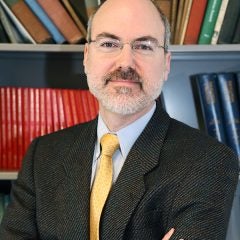
Mark Dworkin, MD, is an infectious disease physician and epidemiologist whose research focuses on HIV medication adherence. He is currently leading a National Institutes of Health funded randomized clinical trial testing a mobile phone app intervention designed for young African American men who have sex with men that features a human avatar that teaches and motivates. Other recent research work has involved studying electronic adherence monitoring as an intervention for young African American men who have sex with men and understanding barriers to medication adherence in female sex workers living with HIV in Hyderabad, India. Other interests include public health surveillance of infectious diseases, outbreak investigation, and food poisoning prevention.
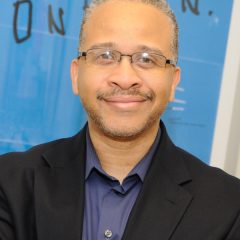
Vincent Freeman, MD, MPH ’94, is a clinical epidemiologist with a special interest in cancer, health equity and healthcare access and delivery. His research focuses on the causes and remedies of health disparities by race and place from biological, sociological and healthcare services perspectives. His major disease focus is prostate cancer, with an emphasis on the role of components of diet (antioxidants and fatty acids) and energy balance in cancer progression and their relation to racial/ethnic disparities in morbidity and mortality from the disease. As part of his research, he has built a repository of highly annotated biospecimens, including fresh normal and malignant prostate tissue, buffy coat DNA and repeated collections serum and plasma for longitudinal measurements of antioxidants, hormones, and other factors.
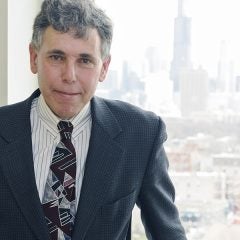
Ronald Hershow, MD, engages in epidemiologic research that mainly deals with HIV infection in women, hepatitis C virus infection, and nosocomial infections. Areas of focus include viral coinfections and other cofactors that may influence HIV disease progression, prevention of infectious disease morbidity in substance users, and the epidemiology of antibiotic-resistant microorganisms in hospitals. In more recent years, his research has expanded globally including the study of best approaches to promote successful antiretroviral therapy use among HIV-infected injection drug users in Indonesia.

Supriya Mehta, PhD, focuses on identifying bio-behavioral risks and pathways for STIs and HIV. Her work in antimicrobial resistant N. gonorrhoeae has provided support to national STI treatment guidelines in Kenya. A current study in Kisumu, Kenya seeks to understand how the penile microbiome contributes to STIs. Her teaching interests include core epidemiologic concepts and the epidemiology of sexually transmitted infections.
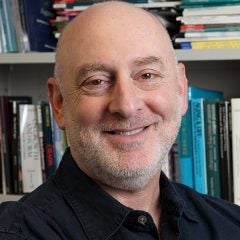
S. Jay Olshansky, PhD, focuses on estimates of the upper limits to human longevity, exploring the health and public policy implications associated with individual and population aging, forecasts of the size, survival, and age structure of the population, pursuit of the scientific means to slow aging in people (The Longevity Dividend), and global implications of the re-emergence of infectious and parasitic diseases. Dr. Olshansky is on the board of directors of the American Federation of Aging Research; he is the first author of The Quest for Immortality: Science at the Frontiers of Aging (Norton, 2001) and A Measured Breath of Life (2013); and co-edited Aging: The Longevity Dividend (Cold Spring Harbor Laboratory Press, 2015).

Victoria Persky, PhD, co-leads the Community Outreach and Engagement Core within the NIEHS-funded Chicago Center for Health and Environment, a partnership between UIC and the University of Chicago. In that role, she engages with underserved minority communities in Chicago to identify and address potential environmental hazards of concern. Her research has exposed wide racial disparities in the incidence and severity of asthma in Chicago, the effects of persistent organic pollutants on the endocrine system and environmental health concerns facing residents of the southeast side of Chicago.

Caryn Peterson, PhD, focuses on determinants of racial, ethnic and socioeconomic disparities in cancer outcomes, including ovarian and Human Papillomavirus-related cancers. Her current work focuses on developing evidence-based programs to increase acceptability and utilization of the HPV vaccine, as well as screening to prevent HPV-related cancers among underserved individuals. She is also the co-director of UIC’s Cancer Education and Career Development Program, a National Cancer Institute-funded training grant that prepares pre-and postdoctoral fellows to conduct research in cancer disparities research.
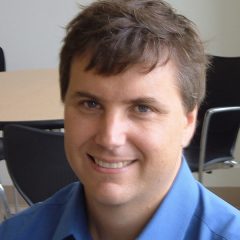
Garth Rauscher, PhD, has conducted research in disparities in breast cancer screening, diagnosis and treatment for more than 15 years. Currently, he is the lead for the Metro Chicago Breast Cancer Registry, one of six active registries that contribute demographic, radiology and population-based breast cancer data to the Breast Cancer Surveillance Consortium. He serves as principal investigator for the Breast Cancer Care in Chicago study which has provided data for numerous student publications and presentations regarding racial/ethnic and socioeconomic disparities in breast cancer tumor characteristics, quality of care and outcomes.
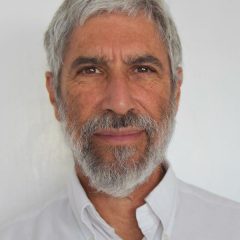
Leslie Stayner, PhD, has more than 30 years of experience conducting research in the field of occupational and environmental epidemiology. Previously, he worked for the National Institute for Occupational Safety and Health and as a visiting scientist with the International Agency for Research on Cancer. His research current research focuses on the effects of exposures to nitrates and other agricultural chemicals in drinking water and the risk of childhood cancer and adverse reproductive and developmental outcomes. Previous research has centered on areas of occupational cancer, quantitative risk assessment and epidemiologic methods.
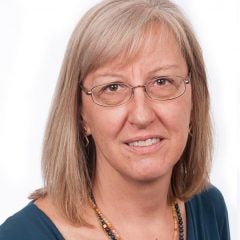
Mary Turyk, PhD, engages in research and training in environmental epidemiology. Her primary research program focuses on the cardiometabolic, endocrine and reproductive health effects of chronic exposure to contaminant mixtures. Recent work in this area explores the complex relationships among fish consumption, contaminant exposures, cardiovascular disease, blood glucose, inflammation, insulin resistance, and endogenous hormones. She has extended this work to translational projects, including a clinical trial of an intervention to promote healthy fish consumption in Asian American women of reproductive age.